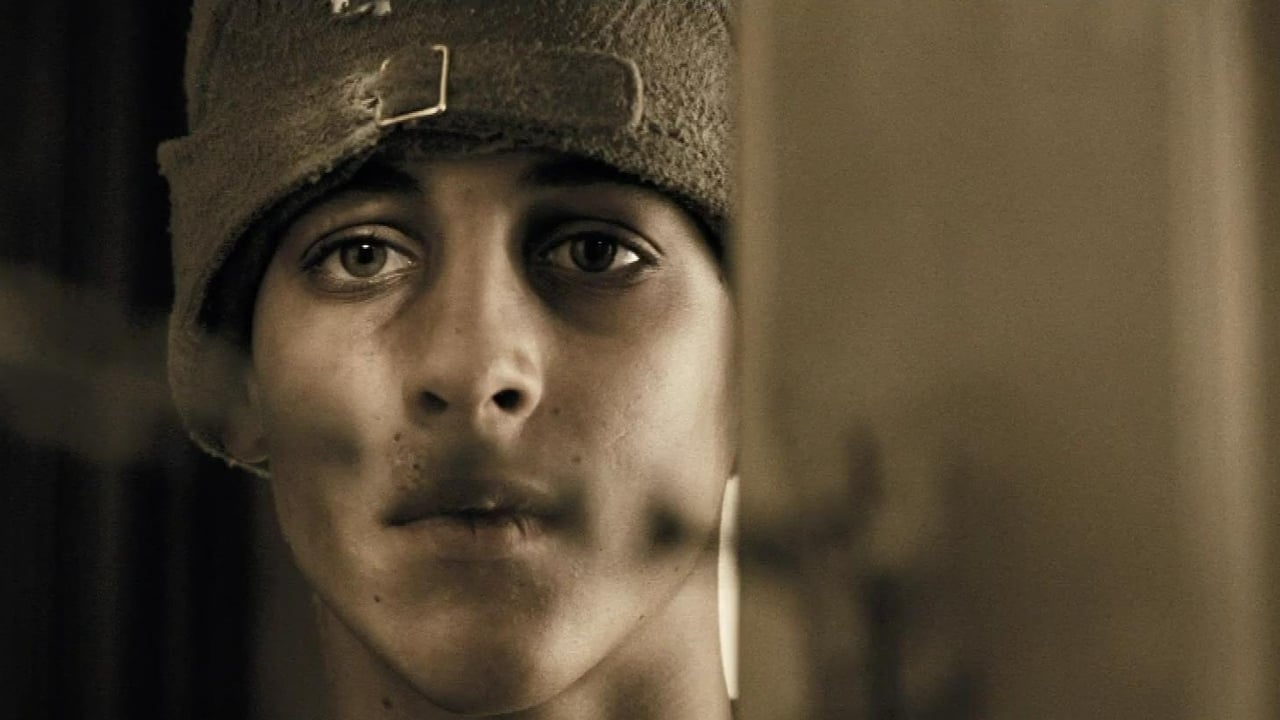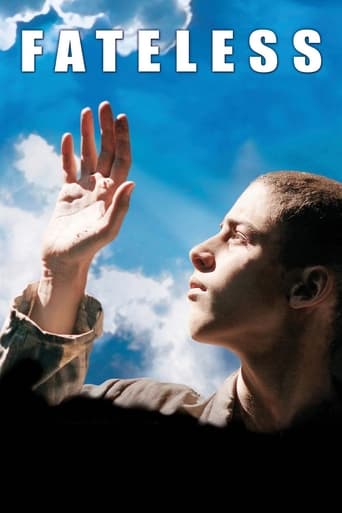

Well Deserved Praise
... View MoreSimply Perfect
... View MoreFantastic!
... View MoreWorth seeing just to witness how winsome it is.
... View MoreThis film when I saw it, was hyped up to be brilliant and as good as the Pianist, which it was nowhere near, it was wishy washy, without emotions and was hard to engage in the hardships, It needed more gore and was one of the happiest Hollocaust films ever made and portrays the camp as OK and like they were having fun in the beginning.Very un-heartfelt and had a true bad bit of acting by Daniel Craig (who shouldn't have been in it, Hollywoodiseing it.Not one I can recommend, but if you like wishy washy untrue Holocaust films, this is for you. this is due to in the camp them helping him when he is down and out and giving him a nice bed, you cant see the Germans doing this, its was against their ethos.Anyway over the whole i would give it 5.5-6 out of 10.
... View MoreA visual masterpiece and one of the most moving, haunting films you will ever see. This is truly a film you will never forget. The cinematography is breathtaking and unflinchingly gritty and real and I applaud the director's decision to focus on a single person in order to avoid overwhelming the audience with the sheer magnitude of the events depicted. There is a lengthy interview with the author of the Nobel Prize winning memoir that is the basis for the movie, in which he criticizes prior films, most notably Schindler's List, as being too focused on historical accuracy and the big picture. I don't know if I agree, but his insistence on focusing on a single person's experience does make this film stand out among the many Holocaust films. It also makes the movie far easier to relate to and comprehend as it simply depicts the struggles of one young boy as he attempts to survive and later understand the unimaginable. I would have liked to see a little more of the aftermath, but perhaps the source material simply does not mention this or the author did not wish to have it included in the film and the director has taken great pains to conform to Imre Kertész's wishes and to the book. At any rate, it may be for the best that this is simply hinted at when the boy claims some of his experiences in the camps can only be described as beautiful and there are allusions at the end to deep psychological trauma. The acting is superb and Marcell Nagy does a terrific job of conveying György's experiences without seeming overly self-aware or like he's acting at all.
... View MoreBecause of SCHINDLER'S LIST, movies about the Holocaust became more intense in their depiction of the horrors committed in the concentration camps. However, FATELESS has less in common with Spielberg's movie and is closer in essence to THE PIANIST in which a young man -- here a teenager -- is put into the meat-grinder of experience and survives to tell his story. It also shares a similarity to Spielberg's EMPIRE OF THE SUN in which another boy also faced the horrors of war and experienced an accelerated, painful growth, emerging as a near shell of his former self at the close of the film.However, the boy in FATELESS, Gyuri Kovacs, is faced with a dilemma concerning his own Jewishness all throughout the movie. At the start of the movie, a girl he has a crush on expresses her anger at being labelled a Jew and having to wear the cross. It's as if, for her, being Jewish were the equivalent of being a freak of nature -- and it's a possible feeling, not very mentioned, because for many, suddenly being thrown into the lion's den and being systematically destroyed for the very sake of being Jewish must have been as incomprehensible for them as for example, a gay man being pummeled to death by homophobes.Later on, when he is through a "fateful decision" taken into Auschwitz, we're given hints of the inhuman levels of violence that just being in the camps must have been. A short scene in which one of the boys reveals his age to be sixteen and is sent to a group where other "selected" stand, is so potent because of what it implies rather than shows as the camera lingers for one long moment at his bespectacled, confused face. His own survival seems to rely on his veiled attitude at the horror he experiences: it's as if his own incomprehension of what is happening to him would be his own saving grace.And even then the question floats over his head as to his own heritage, to which he has no answer. Moments of inevitable friendship ensue with a young man who takes to the boy, and in the meantime, the picture grows more and greyer as the life is literally sucked out of Gyuri.A turning point takes place late in the movie, however, and it becomes a nearly unwatchable experience to see Gyuri being placed in a row of corpses (more so because another near-dead man, thin as a rail, resists even then to his own "fate"). His own survival and return to society is comparable to that of the shell-shocked Vietnam soldiers who, once they came back from the war, were greeted not with open arms but with a sense that they were damaged goods.What is surprising, though, is the attitude that Gyuri has once he is free of his systematic punishment. It's a facet that hasn't really been explored, and one that I thought was an interesting, novel approach not just to this situation but any situation. The fact that Gyuri decides to say that he never saw gas chambers or crematoriums, and that he decides not to let this horrific event have any hold over him is probably the single most powerful message FATELESS expresses. By not wallowing in the tragedy, the movie takes on a transcendental quality. It's a rare move to have a story focus more on hope within and after the horror, and Gyuri's last words, "...if I don't forget them..." ring very true. Sometimes, the only way to truly survive is to do the unthinkable: to forget and move on.
... View MoreHolocaust narratives, like coming out stories, are legion there're millions of them, each differentiated by details of personality, place, storyteller temperament. But those specifics are vastly important. If they aren't unique, the narrative risks falling into recognizable clichés. Fateless, directed by cinematographer Lajos Koltai (Malena, Mephisto), is The Compleat Holocaust familiar to us from films as different as Schindler's List and Au Revoir les Enfants, to name only two.Gyuri Koves (Marcell Nagy), an average teen, is taken from Budapest to Auschwitz, then Buchenwald. These Hungarian sections prior to Gyuri's deportation are understated and wrought. The first thirty minutes of Fateless concern Gyuri's family's last day together, before his father's shipped to a work camp. These domestic scenes are underplayed and harrowing. Yet once Gyuri is taken from a public bus and loaded onto a train with other Hungarian Jews, Fateless plays too slowly like a compendium of other, better films.Fateless is shot on desaturated stock. Though elegantly framed, this absence of color of vitality might work if the earlier scenes in Budapest were not also drained, and if the same technique hadn't also been used in Spielberg's Schindler's List. (I kept waiting for the girl in the red coat to wander by.) Koltai ends sections with fade outs at first, they seem organic, until they're used to finish every scene. This affectation robs the film of its accretion of horrific details. Each fade out compartmentalizes what has come before; the narrative disconnects, becomes anecdotal.And Marcell Nagy's Gyuri is disaffected from the start. He seems much the same at the beginning as at the end; thinner, certainly, but still the same sullen teenager. What he's gone through is awful. But the film isn't fateless, it's listless, and it robs Gyuri's story of its power.
... View More